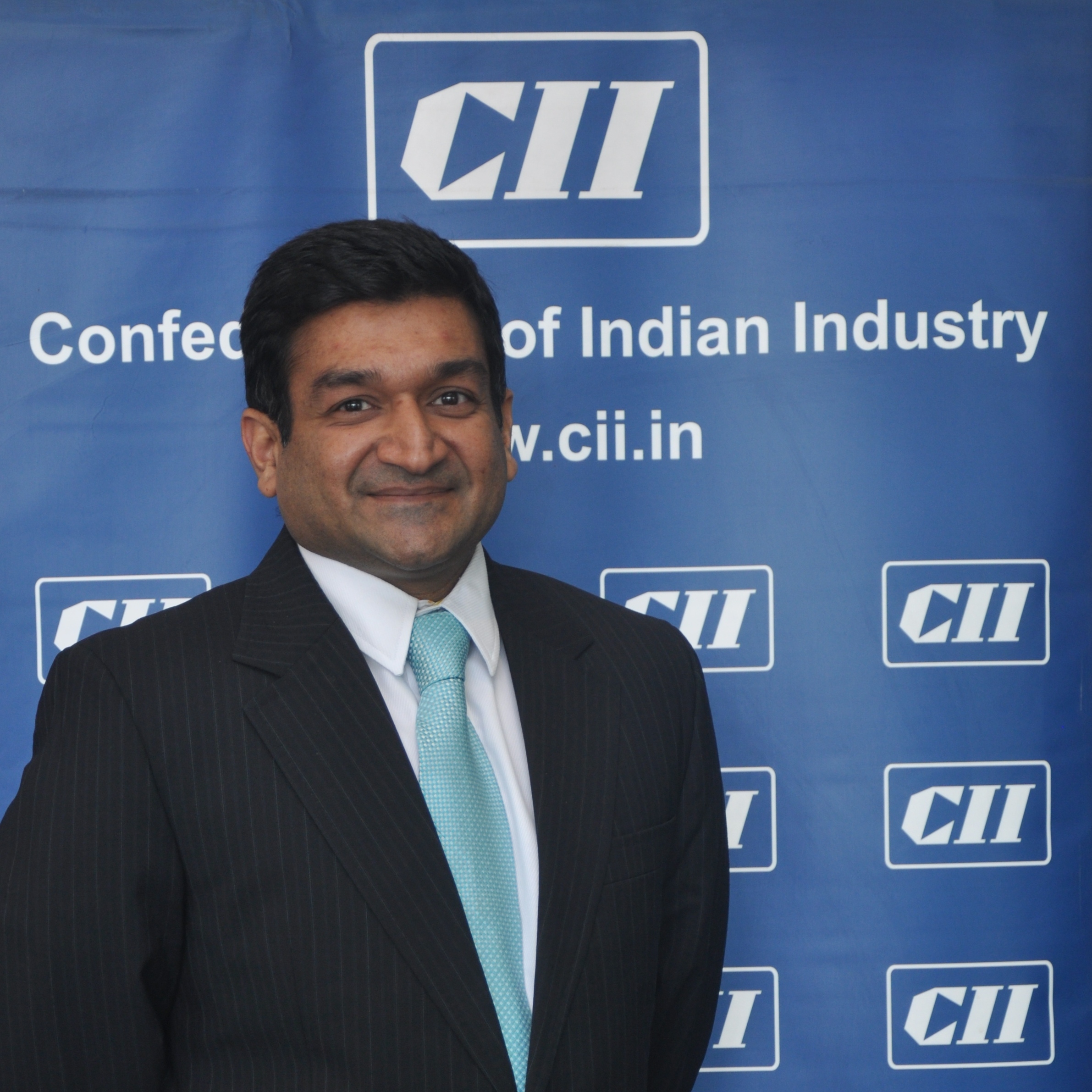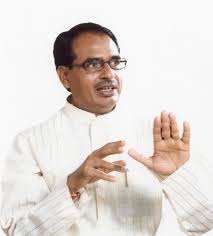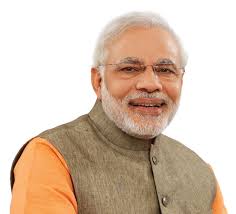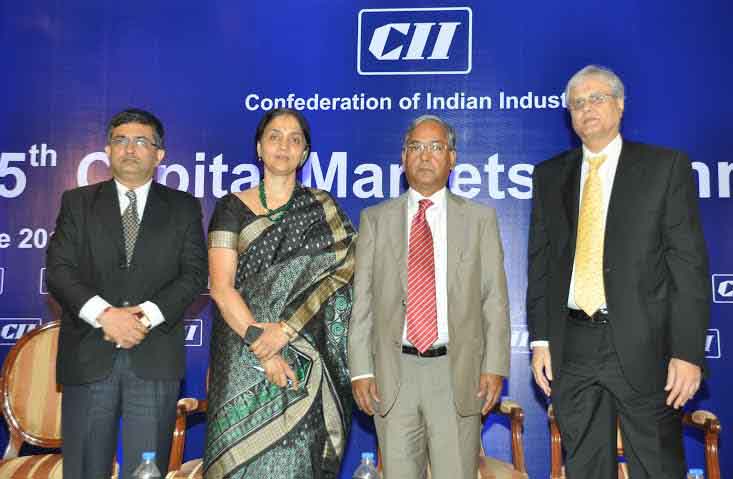Mr. Anshul Mittal, Chairman, CII Madhya Pradesh State Council on Madhya Pradesh State Annual Budget 2018-19
 “Corporates should run their own Pension Funds for their non-EPFO category employees and invest funds in the equity market”, urged Mr U K Sinha, Chairman, Securities& Exchange Board of India while speaking at CII’s 5th Capital Markets Summit. Mr Sinha suggested that this would make reliable,long-term capital available for investment. He further explained that it is not easy for the Government to make drastic changes and requested industry to come forward and take steps to improve market depth.
“Corporates should run their own Pension Funds for their non-EPFO category employees and invest funds in the equity market”, urged Mr U K Sinha, Chairman, Securities& Exchange Board of India while speaking at CII’s 5th Capital Markets Summit. Mr Sinha suggested that this would make reliable,long-term capital available for investment. He further explained that it is not easy for the Government to make drastic changes and requested industry to come forward and take steps to improve market depth.
Annual state Budget of Madhya Pradesh state for the fiscal year 2018-19 has significantly addressed core sectors like agriculture, infrastructure, health, and education which in turn will act as a growth catalyst for all other sectors. Construction of new roads and improvised power infrastructure will enhance Ease of Doing business for industries in state and would lead to a series of initiatives that will aid in job creation.
State budget a public welfare budget: CM Shri Chouhan
 “Corporates should run their own Pension Funds for their non-EPFO category employees and invest funds in the equity market”, urged Mr U K Sinha, Chairman, Securities& Exchange Board of India while speaking at CII’s 5th Capital Markets Summit. Mr Sinha suggested that this would make reliable,long-term capital available for investment. He further explained that it is not easy for the Government to make drastic changes and requested industry to come forward and take steps to improve market depth.
“Corporates should run their own Pension Funds for their non-EPFO category employees and invest funds in the equity market”, urged Mr U K Sinha, Chairman, Securities& Exchange Board of India while speaking at CII’s 5th Capital Markets Summit. Mr Sinha suggested that this would make reliable,long-term capital available for investment. He further explained that it is not easy for the Government to make drastic changes and requested industry to come forward and take steps to improve market depth.
Chief Minister Shri Shivraj Singh Chouhan has termed the states budget as historic and a public welfare budget. He said that the budget keeps in mind all sections of the society and is a budget particularly of women empowerment, employment, farmer, poor, youth and children. For the first time, the budget has crossed over Rs 2 lakh crores. Shri Chouhan was addressing the media during budget presentation in the states Vidhan Sabha.
CM Shri Chouhan said that in the budget the works undertaken in infrastructure particularly irrigation and agriculture are the basis of the states prosperity. Provision has been made of Rs 37 thousand 498 for agriculture and related works and Rs 17 thousand crore for energy. This will increase the growth rate besides increasing per capita income. At the end of the day it is the state that flourishes. Provision of Rs 650 crore has been made for Mukhya Mantri Bhavantar Bhugtan Yojana to provide security to the farmers from fall in market price of crops. Onion has been included in Bhavantar. The budget ensures adequate arrangement of food, clothes, shelter, education, medicines to the poor. Adequate fund has been provided for Mukhya Mantri Medhavi Vidyarthi Yojana. There is provision of scholarship, hostel for Scheduled Caste, Tribe, Other Backward Class and Minority section. He told that Mukhya Mantru Rin Samadhan Yojana has been implemented for farmers, who besides being defaulter, are not able to take loan on zero percent interest. The government will pay the interest amount under the scheme. The farmers will be able to pay the principal amount in installments and will be able to take loan on zero percent interest.
The Chief Minister said that provision of Rs 18 thousand 165 crore is no less than a boon for rural development. A network of rural roads will be laid under various schemes which is an attempt to connect each village with roads. There is provision of Rs 11 thousand 932 crores for urban development. The work of group drinking water schemes for availability of drinking water during drought is commendable. Adequate provision has been made for technical education for skill upgradation of 7.5 lakh youths and connecting 7.5 lakh youths to self-employment in the efforts of employment generation under Chief Ministers Youth Empowerment Mission. He told that a new scheme has been launched under Public Health Family Welfare to promote government health services in private sector in rural areas. On investment in health sector, the private sector will be provided capital subsidy of 40 percent in rural areas and 50 percent in Scheduled Tribe sector. Effective steps have been taken for employee welfare in the budget.
PMs Statement on Union Budget 2018-19
 “Corporates should run their own Pension Funds for their non-EPFO category employees and invest funds in the equity market”, urged Mr U K Sinha, Chairman, Securities& Exchange Board of India while speaking at CII’s 5th Capital Markets Summit. Mr Sinha suggested that this would make reliable,long-term capital available for investment. He further explained that it is not easy for the Government to make drastic changes and requested industry to come forward and take steps to improve market depth.
“Corporates should run their own Pension Funds for their non-EPFO category employees and invest funds in the equity market”, urged Mr U K Sinha, Chairman, Securities& Exchange Board of India while speaking at CII’s 5th Capital Markets Summit. Mr Sinha suggested that this would make reliable,long-term capital available for investment. He further explained that it is not easy for the Government to make drastic changes and requested industry to come forward and take steps to improve market depth.
I congratulate the Finance Minister Shri Arun Jaitley for this budget. This budget strengthens the foundation stone of New India. The budget focus is on issues ranging from agriculture to Infrastructure. On one hand, budget covers aspects such as health plans to address the concerns of the poor and middle class, while on the other hand it has plans to increase the wealth of small entrepreneurs in the country. Other aspects range from food processing to fiber optics, from road to shipping, concerns of youth and the senior citizens, from rural India to Ayushman India and Digital India to Start up India.
This budget is expected to give a boost to hopes and aspirations of 125 crore people of the country. It is expected to accelerate the development process of the country. It is farmer friendly, common man friendly, business environment friendly as well as development friendly. Ease of Doing Business as well as Ease of Living are in focus in this budget. More savings for the middle class, new generation infrastructure for 21st Century India and better health assurance - all are concrete steps towards Ease of Living.
Our farmers have contributed in a big way towards the progress of the country with a record production of fruits and vegetables. Several steps have been proposed in this budget to give a boost to the farmers and enhancing their income. A record allocation of Rs. 14.5 lakh crores has been made for rural development and agriculture. Dalits, oppressed and disadvantaged sections of the society will be benefited with out of 51 Lakh new homes, more than 3 lakh kilometers of roads, about 2 crore toilets, electricity connections in 1.75 crore households. These initiatives will create new opportunities especially in the rural areas. I appreciate the decision to provide for one and a half times remunerative price for the cost incurred by the farmers for his produce. Center will put in place a sound system in consultation with the states to ensure that the farmers can avail full benefits from this decision. 'Operation Greens' will prove to be an effective instrument in this direction especially for the farmers engaged in producing vegetables and fruits. We have seen how Amul was instrumental in ensuring of fair price to the farmers engaged in the dairy sector. We are also familiar with the cluster based approach for the development of the industry in our country. Now, keeping in mind the agricultural produce in different districts, agricultural cluster approach will be adopted in different districts across the country. I welcome the plan to develop the storage, processing and marketing facilities for a particular agricultural produce after identifying the districts.
In our country, the cooperative societies are exempted from paying income tax. But the 'Farmer Producer Organization' -FPO, that is similar to the cooperative societies, does not get this benefit. Therefore, income tax exemption for the 'Farmer Producer Organization' -FPO, which mint for the welfare of the farmers, is a welcome step. By providing the linkages between the Self Help Groups for women engaged in organic, aromatic and herbal cultivation and the 'Farmer Producer Organizations' the income of the farmers will be increased. Similarly, the Gobar-Dhan Yojana will help in keeping the village clean, while increasing the income of farmers and cattle herders. In our country farmers take up different occupations along with the farming. Some are associated with pisciculture, animal husbandry, poultry or bee-keeping. Farmers have faced difficulty in accessing loans from banks for such additional activities. Arranging loan for pisciculture and animal husbandry by Kisan Credit Card is a very effective step. There are about 7000 blocks in more than 700 districts of India. In these blocks, emphasis has been laid on modernization of infrastructure of 22 thousand rural business centers, on innovation and on increasing connectivity in the villages. In the days to come, these centers will be able to increase the income of farmers, creates employment opportunities and will become new hubs of agro based rural and agricultural economy. Under Pradhan Mantri Gramin Sadak Yojna, now the villages will be connected to rural haats (markets), higher education centers and hospitals. This will make life easier for the people in the villages.
We have seen an extension of the spirit of the Ease of Living in Ujjwala Yojana. The scheme has not only provided a relief to the poor women from the smoke but also become a huge source of their empowerment. I am happy to note that the target for Ujjawala has been enhanced from 5 crore families to 6 crore families. A large number of dalit, tribal and backward class families have been benefited from this scheme. This budget provides for allocation of about Rs 1 lakh crores for the welfare of scheduled castes and scheduled tribes.
Medical treatment and its cost has always been a cause of concern for the lower middle class and poor sections of the society. The new scheme 'Ayushman Bharat', presented in the budget, will address this serious concern. This scheme will be available to nearly 10 crore poor and lower middle class families of the country. It means it will provide coverage to 45-50 crore people. Under the scheme these families will get free treatment up to Rs. 5 lakhs per annum in the identified hospitals. This is by far, the world's largest health insurance plan for which government will bear the cost. The idea of setting up 1.5lakh Health Wellness Centers spread over all the major panchayats of the country is commendable. This will provide easy access to health care services to the people living in the villages. Establishment of 24 new medical colleges across the country will not only facilitate the treatment of the people but also help to impart medical education to the youngsters. It is our endeavor to have at least one medical college for covering three parliamentary constituencies across the country.
Several important decisions have been taken in this budget keeping in mind the concerns the Senior Citizens. Now the Senior Citizens will be entitled to have minimum interest of 8% on amount up to Rs 15 lakh under the Pradhan Mantri Vaya Vandan Yojana. No tax will be levied on interest up to Rs 50,000 on their Banks and Post Office deposits. Health insurance premium worth Rs 50,000 will exempt from the Income tax. Besides, relief from the Income Tax has been provided on expenditure up to Rs 1 lakh incurred on treatment of serious diseases.
For a long time, the small and medium enterprises or the MSME in our country had to pay higher taxes than the big industries. In a bold in this budget, the government has reduced the tax rate for MSME by 5% now they will have to pay 25% tax in place of 30% which was the practice earlier. Credit seeking facility from the banks and NBFCs has been eased to ensure the required working capital for MSME industries. It will give a boost to the mission of Make in India.
MSME sector has been experiencing stress due to NPA in big industries. The small entrepreneurs must not suffer because of the fault of others. Therefore, the government will soon announce corrective measures to resolve the problems related to NPA and Stressed Account in the MSME sector.
In order to promote the employment and to provide social security to the employees the government has taken a far reaching decision. This will give impetus to the shift from the informal to formal sector and it will generate new job opportunities. Now the government will contribute 12% in the EPF Account of the new laborers for a period of 3 years. Besides, the contribution of new women employees in the EPF for a period of 3 years is being reduced from the existing 12% to 8% so that their take home salary increases and more employment opportunities are available for the women. However, the employer contribution will be maintained at 12%. This is a major step towards empowerment of working women.
In order to realize the dream modern India, to enhance the Ease of Living of the common man and to ensure stability in development, India requires a Next Generation Infrastructure. Special emphasis has been given to the development of infrastructure related to Digital India. Allocation of Rs. 6 lakh crores has been made which is Rs. 1 lakh crore more than the previous year. These schemes will enhance the employment opportunity manifold in country.
I congratulate the Finance Minister for the tax concession to the salaried and the middle class.
This budget will live up to the expectation of every Indian Citizen. The budget has ensured the following remunerative price of the crop to the farmer, upliftment of the poor with the welfare schemes, respecting the honesty of the tax paying citizen, support to the spirit of entrepreneurs with a right tax structure and hailing the contribution of senior citizens for the country.
Once again my heartfelt congratulation to the Finance Minister and his team for presenting a budget which enhances the ease of living and laying a strong foundation for the New India.
SEBI Chairman urges Industry to understand the intention behind new disclosure and governance norms
Its time Industry takes steps tostrengthen Capital Markets: U K Sinha, Chairman, SEBI
 “Corporates should run their own Pension Funds for their non-EPFO category employees and invest funds in the equity market”, urged Mr U K Sinha, Chairman, Securities& Exchange Board of India while speaking at CII’s 5th Capital Markets Summit. Mr Sinha suggested that this would make reliable,long-term capital available for investment. He further explained that it is not easy for the Government to make drastic changes and requested industry to come forward and take steps to improve market depth.
“Corporates should run their own Pension Funds for their non-EPFO category employees and invest funds in the equity market”, urged Mr U K Sinha, Chairman, Securities& Exchange Board of India while speaking at CII’s 5th Capital Markets Summit. Mr Sinha suggested that this would make reliable,long-term capital available for investment. He further explained that it is not easy for the Government to make drastic changes and requested industry to come forward and take steps to improve market depth.
While acknowledging regulatory hurdles to IPOs, Chairman also pointed out that reluctance on part of companies to comply with prescribed governance norms is equally responsible for the lack-lustre IPO market. He advised companies not to push back but project best practices to attract domestic and international investors.
Mr Sinha announced that SEBI is adopting measures to ensure that filing of information just once with SEBI would be adequate compliance through Annual Information Memorandum. This should be operational within three months. On adoption of other facilitative initiatives, Mr Sinha announced that KYC across the Financial Sector would be integrated with the co-operation of all other financial sector Regulators.
Mr Sinha also announced that revised ESOP Guidleines which would soon be issued by SEBI would be progressive and would resolve existing anomalies. He also mentioned that minimum public shareholding norms would be made neutral vis-à-vis ownership.
Speaking at the Summit Mr. Nimesh Kampani, Chairman, CII National Committee on Capital Markets & Chairman, JM Financial Group suggested some exclusive tax benefits be offered on mutual fund investments, instead of clubbing them under 80C. Tax exemptions that will help channelize savings into the system as well as providing long term funds should be granted.
He further added whether Investor awareness, financial literacy could be one of the constituents of the mandatory CSR that the companies now have to undertake under the Companies Act.
Ms Chitra Ramakrishna, Managing Director & CEO, National Stock Exchange, upheldthe recent Corporate Governance rules as the next stage of governance model which will help instil confidence amongst investors and said that CII and the exchanges could work together to implement the new Corporate Governance norms.
Mr Ashishkumar Chauhan, Managing Director & CEO, Bombay Stock Exchange, said FTA framework looks promising and was of the view that India should haveDouble Taxation Agreements with far-east Countries will help increase foreign retail investor participation, since they have a large Indian Diaspora.
Mr.Atul Joshi, Managing Director and CEO , India Ratings & Research suggested that India should consider raising municipal bonds to deepen & widen bond markets in India.
4 June 2014
Mumbai
CII Capital Markets Summit
"Fostering Growth of the Indian Economy through Capital Markets"
Please find attached the exclusive photographs of CII Capital Markets Summit, inaugurated by Mr U K Sinha, Chairman, Securities & Exchange Board of India
In Financial Capital of India – in Mumbai.
Photo Caption: SEBI Chief at CII Capital Markets Summit
L TO R
Mr Ashishkumar Chauhan, Managing Director & CEO, Bombay Stock Exchange
Ms Chitra Ramkrishna, Managing Director & CEO, National Stock Exchange
Mr U K Sinha, Chairman, Securities & Exchange Board of India
Mr Nimesh Kampani, Chairman, CII National Committee on Capital Markets & Chairman, JM Financial Group
